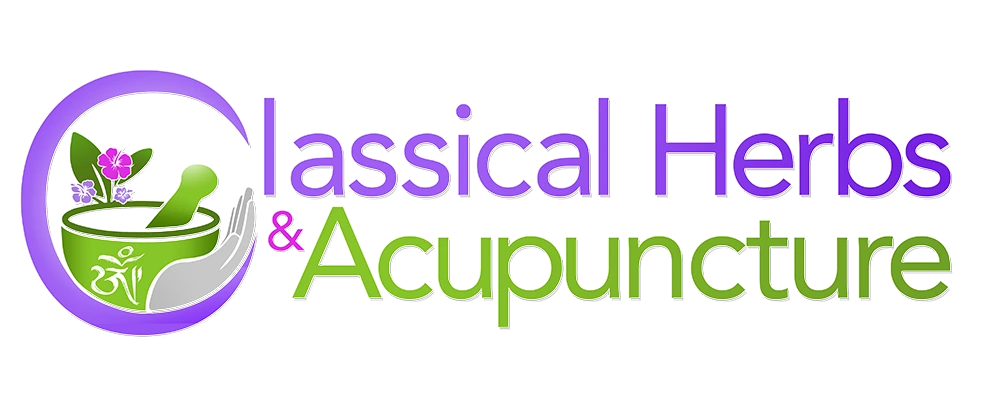Does Chinese Herbal Medicine Work? What You Need to Know about TCM Herbs
Chinese herbs aren’t just plants with a long history. They are a core component of Traditional Chinese Medicine (TCM), which is an ancient medical system that aims to balance our vital energy, or Qi (pronounced “chee”), by harmonizing the opposing forces of Yin and Yang.
In 2021, the global market size for Chinese herbal medicine reached nearly $61 billion and is expected to continue growing due to its widespread usage and demand. However, many people still wonder, “Does Chinese herbal medicine really work?”
Let’s find out in this article everything you need to know about Traditional Chinese Herbal Medicine and expert insights from Dr. Carolyn Cook of Miami Acupuncture & Classical Herbs.
What is Chinese herbal medicine?
Chinese herbal treatments can look like:
Taking a custom formula curated by TCM practitioners like Dr. Carolyn.
Did you know that too much Yin means you are in a cold, damp, and sluggish state? You may feel cold all the time, have a weak voice, poor appetite, and feel nauseated. Meanwhile, excessive Yang can cause the body to become hyper-functional and overheated. Left untreated, both imbalanced states can lead to chronic illnesses and lower quality of life.
That’s where Traditional Chinese herbal medicine steps in. It thaws frozen energy and relaxes the overactive body. Nowadays, you can find them in the medicine cabinets of millions of people thanks to the rising awareness of the following benefits.
Essential Benefits of Chinese herbal medicine
More patients turn to TCM because of its effective healing properties. In fact, about 1.6 billion visits to TCM clinics were recorded in 2024.
Rooted in the ancient Chinese philosophy of harmony between humans and nature, Chinese herbal medicine can:

Boost Energy
Ren Shen (Ginseng)
Ginseng is a powerful adaptogen and Qi tonic that enhances stamina, mental clarity, and helps the body regain energy.

Reduce Fatigue
Astragalus (Huang Qi)

Improve Digestion
Cinnamon Bark (Rou Gui)

Support Heart Health
Dong Quai (Angelica sinensis)

Lower Stress and Anxiety
Xiao Yao San, also known as "Free and Easy Wanderer"

Regulate Hormones
Tiáo-Gēng-Tāng
Important reminders about Chinese herbal medicine
1. Consult with a licensed Chinese herbalist for personalized formulas, especially if you have pre-existing health conditions or are pregnant or nursing. This is not a replacement for conventional medical care.
2. Follow your herbalist’s instructions, commonly taking them about 30 minutes before or after meals, to optimize absorption and efficacy. Avoid taking herbs with food unless advised otherwise.
3. Always check for potential side effects such as allergic reactions, nausea, headaches, or more serious effects. Kindly report any adverse symptoms to your healthcare provider promptly.
4. You may need to avoid certain foods that interfere with the effect of your herbal medicine, such as raw/cold foods, greasy/spicy foods, or specific items like coffee, alcohol, or sugar, depending on your condition.
5. Store your Chinese herbal medicine properly in a cool, dry place away from direct sunlight and moisture.
Get Dr. Carolyn’s Healing Herbal Concoction at Miami Herbs
There are numerous success stories to read for more information about Dr. Cook’s effective and compassionate services. To answer the question, does Chinese Herbal Medicine work? The results don’t lie. It does with the right licensed herbalist, a personalized formula, and the right conditions for your body.
Are you ready to heal through plant-based remedies? Schedule a consultation today!
Sources
郑成琼. (2025). Traditional Chinese medicine sees rising popularity among China’s youth. Scio.gov.cn.
http://english.scio.gov.cn/chinavoices/2025-08/25/content_118040914.html
Benefits and Uses of Xiao Yao San. (n.d.). Cleveland Clinic.
https://health.clevelandclinic.org/benefits-of-xia-yao-san
Cognitive Market Research. (2022, October 22). Global Traditional Chinese Herbal Medicine Market Report 2025 Edition, Market Size, Share, CAGR, Forecast, Revenue. Cognitive Market Research.
https://www.cognitivemarketresearch.com/traditional-chinese-herbal-medicine-market-report
Chen, R., Moriya, J., Yamakawa, J., Takahashi, T., & Kanda, T. (2010). Traditional Chinese Medicine for Chronic Fatigue Syndrome. Evidence-Based Complementary and Alternative Medicine (ECAM), 7(1), 3–10.
https://doi.org/10.1093/ecam/nen017
Wang, Y., Wang, Q., Li, C., Lu, L., Zhang, Q., Zhu, R., & Wang, W. (2017). A Review of Chinese Herbal Medicine for the Treatment of Chronic Heart Failure. Current Pharmaceutical Design, 23(34), 5115–5124.
https://doi.org/10.2174/1381612823666170925163427
Xu, L., Kluwe, L., Zhang, T., Li, S., Mou, Y., Sang, Z., Ma, J., Lu, X., & Sun, Z. (2011). Chinese herb mix Tiáo-Gēng-Tāng possesses antiaging and antioxidative effects and upregulates expression of estrogen receptors alpha and beta in ovariectomized rats. BMC Complementary and Alternative Medicine, 11(1).
https://doi.org/10.1186/1472-6882-11-137
Zhang, Y., Jin, F., Wang, X., Jin, Q., Xie, J., Pan, Y., & Shen, W. (2022). Chinese herbal medicine for the treatment of chronic fatigue syndrome: A systematic review and meta-analysis. Frontiers in Pharmacology, 13.
https://doi.org/10.3389/fphar.2022.958005
5 TCM Pantry Herbs to Improve Digestion. (2020). Thomsonmedical.com.
https://www.thomsonmedical.com/blog/chinese-herbs-to-improve-digestion

